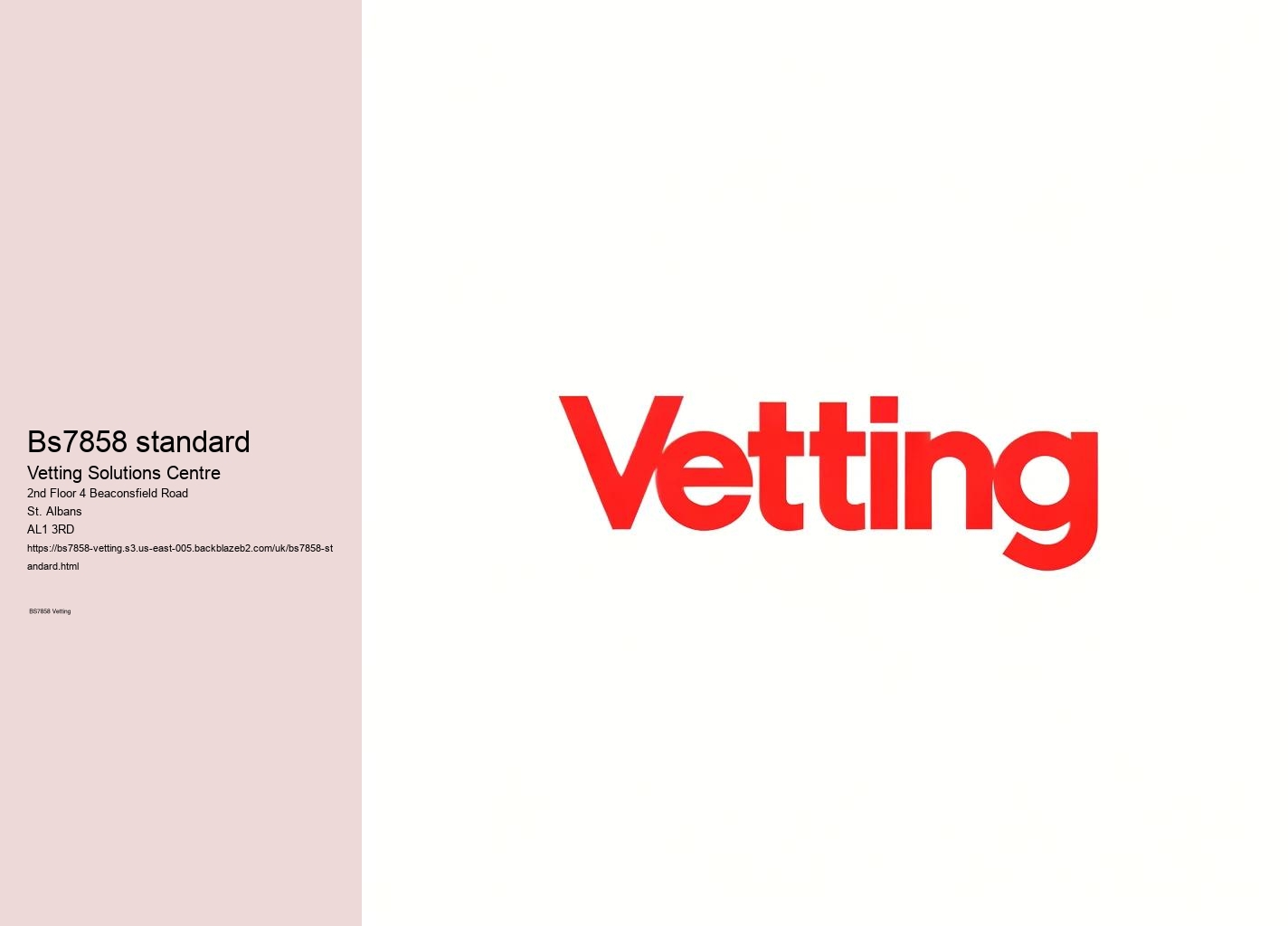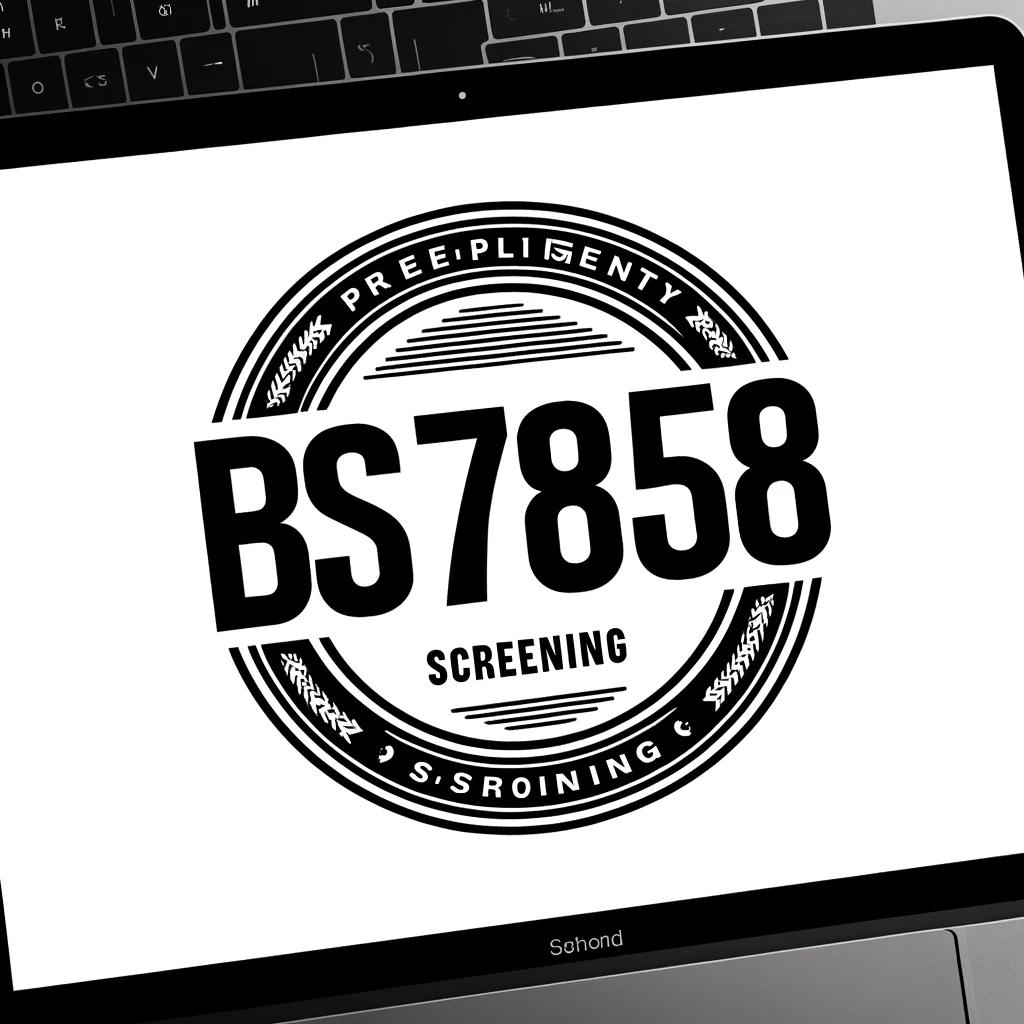

5. Adverse Work History: Gaps in employment history that cannot be accounted for, or negative references from previous employers, could also lead to a fail.
Failing a BS7858 check doesn't necessarily mean an individual is permanent-ly barred from all secure employment. The implications of a fail depend on the employer's policies, the nature of the role, and the specific reasons for the failure. Some issues might be considered more serious than others, and in some cases, it may be possible to address the reasons for failure and pass the check upon reapplication. Employers should also provide feedback to candidates on the reasons for the failure, where appropriate, and consider any mitigating circumstances presented by the candidate.
BS7858 checks typically require a comprehensive review of an individual's history over the last five years. This includes verification of employment history, criminal record checks, financial checks (such as credit history), and confirmation of identity and right to work status for the specified period.
The five-year timeframe is designed to provide a thorough understanding of an indi-vidual's background and ensure that those in positions of trust or within secure envi-ronments are appropriately vetted. However, certain aspects of the vetting, like criminal record checks, can reveal convictions or relevant information that occurred more than five years ago. The extent of historical information reviewed can depend on the type of check conducted and the policies of the organization implementing the BS7858 standard.
It's also worth noting that if there are significant gaps in an individual's employment history or if there are other areas of concern that cannot be satisfactorily explained or verified within the last five years, the employer may seek additional information beyond this period to complete the vetting process comprehensively.
A BS7858 check is typically ordered by employers who wish to screen indi-viduals before employing them in positions that require a high level of trust and integrity. This is common in industries where employees will have ac-cess to sensitive or confidential information, work in secure environments, or handle valuable assets. Employers across various sectors, including but not limited to, security services, financial institutions, IT, telecommunica-tions, and healthcare, may require BS7858 checks to ensure the safety and security of their operations.
Employers or their designated representatives, such as HR departments or hiring managers, are responsible for initiating the BS7858 vetting process. They must ensure that the vetting process complies with the BS7858 stand-ard and relevant legal requirements, such as data protection laws.
In some cases, third-party companies that specialize in background checks and vetting services are engaged to conduct BS7858 checks on behalf of employers. These companies are experts in carrying out comprehensive background checks in line with the BS7858 standard, ensuring that all nec-essary steps are completed accurately and efficiently.
It's important for employers to communicate clearly with candidates about the nature of these checks, the specific information being sought, and to obtain consent from the individual before proceeding with the vetting pro-cess. This ensures that the process is transparent and compliant with legal requirements concerning privacy and data protection.


Certainly! BS 7858 is a British Standard that provides a best practice frame-work for the screening of individuals working in a secure environment. It sets out the requirements for the vetting process, including identity checks, employment history, criminal record checks, and more. Adherence to such standards can significantly aid companies in achieving or maintaining ISO accreditation, particularly those related to quality management systems (like ISO 9001) or information security management systems (like ISO 27001). Here’s how BS 7858 compliance can help:
Enhancing Quality Management Systems (ISO 9001)
• Process Consistency: ISO 9001 emphasizes the importance of con-sistency in delivering quality products or services. By adhering to BS 7858, companies ensure a standardized vetting process, contributing to overall process consistency.
• Risk Management: Part of the quality management involves identify-ing and managing risks. Proper vetting reduces the risk of hiring indi-viduals who may not meet the organization's standards for integrity and reliability, thereby supporting the ISO 9001 focus on risk-based thinking.
• Continuous Improvement: BS 7858 encourages regular review and updates to the screening process, aligning with ISO 9001’s principle of continuous improvement. Companies can identify areas for improve-ment in their vetting processes, which can lead to enhancements in overall quality management practices.
Supporting Information Security Management Systems (ISO 27001)


• Information Security: ISO 27001 requires organizations to manage the security of assets such as financial information, intellectual proper-ty, employee details, and information entrusted by third parties. Ad-hering to BS 7858 helps ensure that employees who have access to such sensitive information are thoroughly vetted, thus reducing the risk of insider threats.
• Human Resource Security: One of the control sets in ISO 27001 (An-nex A.7) deals specifically with human resource security, covering as-pects from before employment (e.g., background checks) to during and after employment. Following BS 7858 demonstrates that an or-ganization takes this seriously and has robust controls in place for screening individuals before they are granted access to sensitive in-formation.
• Compliance: Both ISO 27001 and BS 7858 emphasize the importance of complying with legal and contractual requirements. By adhering to BS 7858, companies can also demonstrate compliance with relevant laws and regulations, supporting their ISO 27001 certification efforts.
General Benefits for ISO Accreditation
• Trust and Credibility: Companies that adhere to recognized standards like BS 7858 not only enhance their operational processes but also build trust among clients, stakeholders, and regulatory bodies. This trust is crucial for achieving and maintaining ISO accreditations.
• Competitive Advantage: By demonstrating commitment to best prac-tices and international standards, companies can distinguish them-selves in the marketplace. This is particularly true when tendering for contracts where such certifications and accreditations may be a re-quirement or provide a competitive edge.
